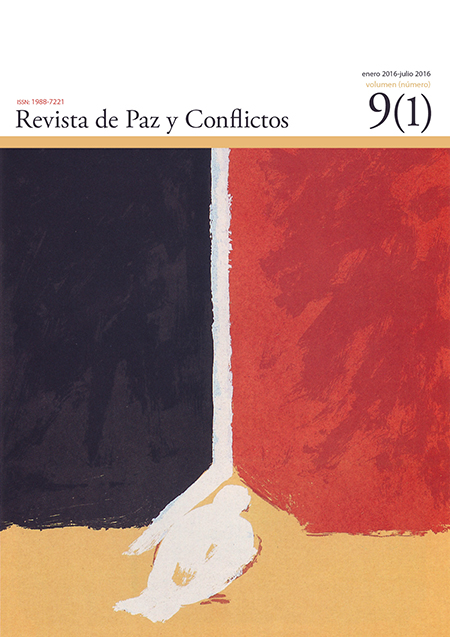El otro lado de la paz. Las lecciones zen de Fight Club
DOI:
https://doi.org/10.30827/revpaz.v9i1.4693Palabras clave:
zen, desarrollo individual, valores humanos, investigación para la paz, noviolenciaResumen
Este trabajo propone dar espacio al valor del individuo dentro de la Investigación para la paz, una disciplina muy centrada en el ámbito público y político. La Irenología se ha desarrollado a partir de grandes marcos interpretativos de la humanidad, los conflictos y las violencias. Esto ha sido así por su vocación de convertirse en una ciencia social sólida, sistemáticamente estructurada para deducir principios y leyes generales experimentalmente comprobables. Si bien la Investigación para la paz reivindica su peculiaridad como ciencia con valores, no ha dejado de hacerlo casi exclusivamente en el plano de lo público y lo político. En esencia, este artículo pretende realizar una aportación sobre la importancia de encontrar el equilibrio y la coherencia entre la teoría y la práctica, así como entre el trabajo sociopolítico y el individual. De este modo, persigue destacar la importancia del desarrollo personal como base para terminar siendo más valioso como agente de cambios sociales y políticos. El medio para hacerlo es el análisis y comentario de Fight Club, de Chuck Palahniuk, novela que es una singularmente aguda invitación al individuo occidental, sumamente centrado en lo material y social, a mirarse introspectivamente y sacar lo mejor de sí. Para ello, utiliza algo tan aparentemente ajeno a él como la filosofía zen, mediante la que un protagonista modelo de la sociedad occidental realiza su camino hacia la realización a través de principios como el aprendizaje mediante la propia experiencia, el desapego, el autoconocimiento, y la percepción del yo como parte mortal de la naturaleza y el conjunto de los seres humanos.
Descargas
Descargas
Publicado
Cómo citar
Número
Sección
Licencia
Esta obra está bajo una licencia internacional Creative Commons Atribución 4.0.














